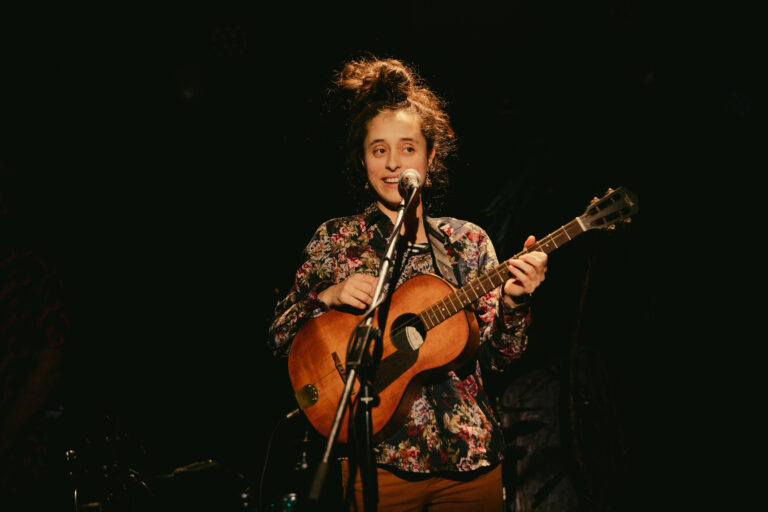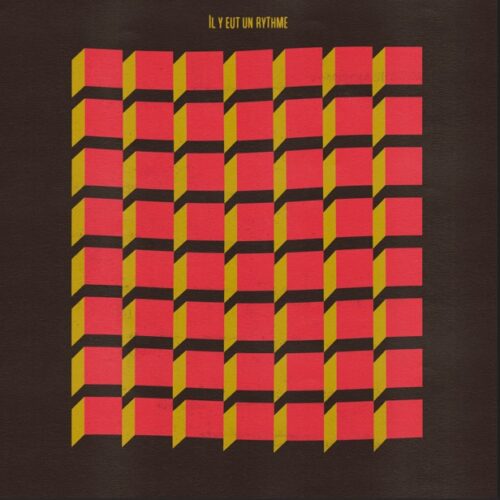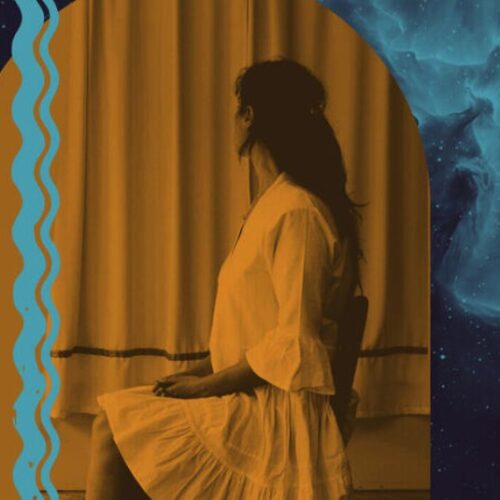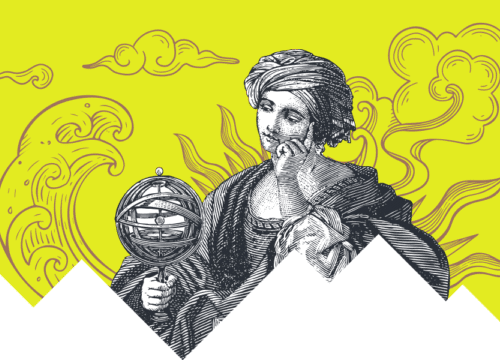Additional Information
Blanche Moisan Méthé built her career as a trumpeter, tubist, and vocalist, collaborating with a wide cast of musical groups before embarking on the path of a singer-songwriter. Now performing under the moniker of BLAMM, she released her first LP, Balivernes, earlier this year. Her compositions, infused with much irony, are inspired by the music of New Orleans, the rich poetry and folk traditions of Quebec, and the urban wisdom that comes from living in a city like Montreal. We sat down with BLAMM to talk about her story, her first release, and her coming performance at Club Soda.
BLAMM opens for JP « Le Pad » Tremblay at Club Soda on the 22nd of December at 8PM.
PAN M 360 : Hey BLAMM, thanks again for being with us. You released Balivernes about six months ago now. And I imagine that’s a very interesting place to be. To be six months after the release of your album.
BLAMM : Oh definitely.
PAN M 360 : Maybe you can tell us a bit about what that feels like?
BLAMM : Okay, well first of all, I really enjoyed those last six months. I got to tour quite a bit this summer. So as I was releasing Balivernes, I was also booking my summer gigs pretty much. You know I’m doing it all myself, and now that I’m back here I realise I didn’t spend any time booking for the fall ! So I’m going back to that and also working on some new ideas. I think I’ve got my mindset on starting the process for the second album now.
PAN M 360 : Yeah, I suppose you can’t rest on your laurels too much.
BLAMM : Well, it’s fun to do ! But I’ve been writing some new songs and that’s generally what I feel I should be spending my time doing when I have some time off.
PAN M 360 : So the experience of releasing your Balivernes was really a positive one? One that encouraged you to want to get back to it?
BLAMM : Yeah, definitely. But coming back from all the touring and having so many upcoming gigs, it’s like, oh, I have to get back to the grind of booking gigs and sending emails and applying to things, which is not the most fun part of it.
PAN M 360 : Well, I wonder when you release something, do you try to promote it as a way to play more shows, or vice versa.
BLAMM : Yeah, I suppose my goal is really to play more shows. And I think making an album is in service of that goal too, to play live. Of course I love being in the studio but really my biggest fun is to play shows.
PAN M 360 : So you think the artistry of BLAMM really comes together in the live experience?
BLAMM : I do really enjoy the studio though, but the process of making an album, the proportion of studio time is kind of small compared to all the work that you have to do. So the studio time is really fun, but a lot of the other stuff is administrative work.
PAN M 360 : And maybe you can just introduce the project of BLAMM to our readers.
BLAMM : Sure. It’s a singer-songwriter project. It’s definitely very Québécois. BLAMM is a sort of an extravagant character who speaks quite frankly, with lots of local expressions and lots of themes that I think are uncommon to the music we tend to hear a lot. A lot of things that are maybe considered too banal, or very simple things that everybody goes through, but nobody talks about, like doing your tax report.
PAN M 360 : Well, you do it in a very interesting like sonic universe too, you know, the way you choose to present these themes.
BLAMM : Well, I’ve been playing music for almost eight years, playing in so many different projects. And so I guess all those years of being an accompanist and an interpreter shaped my musical world a lot. Those other experiences are all somewhere in there. It’s influenced my writing for the music. And of course the album is centred on brass a lot.
PAN M 360 : So was a brass instrument your first musical instrument?
BLAMM : Yes, it was trumpet in high school. So I’ve been mostly a trumpet player and now I’m coming out as a songwriter all of a sudden.
PAN M 360 : Could you tell me a bit about that transition? Were you always inclined to explore this direction?
BLAMM : I’ve been singing for a long time, not my original songs, mostly like traditional jazz songs. And I’ve always had some mixed feelings about that because I really love singing those songs. I think they are amazing melodically, but the lyrics are not so, well I don’t feel connected to them quite so much.
So I’ve been wanting to write songs about what I want to talk about, and I tried a lot in the past and nothing was coming out at all. Until one day I was in New Orleans and I bought a banjo, a tenor banjo. I thought I was buying it for my friend who plays guitar in my band because I thought he could use it to play banjo in my band instead. But then I ended up starting to noodle on it and I really liked it and I never gave it to him in the end.
PAN M 360 : Is that the peculiar four string guitar that you play?
BLAMM : Actually no, we’ll get to that. So I started on this cheap banjo and as soon as I got the hang of it I started writing songs. Like, right away. I played piano before but it never inspired me to come up with songs like that. But then after a while of playing it a lot I began to think that the banjo is kind of stuck in one style, well not really, but it’s a very particular tone that doesn’t fit in every kind of music. I kind of wanted to go outside of those styles and I happened to have a friend who’s an amazing luthier and I had another banjo playing friend who was ordering a tenor guitar from this guy and I know this luthier likes to do them twice, two at a time because it’s more efficient that way. So I knew it was the time to order it.
PAN M 360 : Wow, so that’s the instrument that’s at the heart of a lot of these compositions?
BLAMM : Yes. Some of them I wrote on the banjo of course, but a lot of them I wrote on with the guitar.
PAN M 360 : And was your fascination with the music of New Orleans because of your love for brass?
BLAMM : Yes, it’s perfect music for brass. It’s festive, it’s happy, it’s contagious. Even those who’ve never heard that kind of music are going to enjoy it and I busk a lot, so I played on the street a lot with this music.
PAN M 360 : Yeah. It’s interesting to hear its influence on your creative work. Because you take this sound but then, as you said, explore these absurd banal themes.
BLAMM : Yeah, there’s a circus vibe to it. I didn’t want to just copy the style and make it French. I really wanted to go somewhere else with it.
PAN M 360 : And so your album is very Québécois at the same time, was that a big frame of reference in making this music?
BLAMM : For the music, maybe not so much. There’s not a lot of brass in our music. And I grew up listening to music from all around the world, not really so much Québécois music. Now I listen to way more of it. But for the words and lyrics, absolutely it was a big reference.
PAN M 360 : So for you, the lyrics were really quite an important part of this.
BLAMM : Absolutely and I think that’s why it took me so long before I started writing because I didn’t know what I wanted to say and it’s not a filler for me. I can just make instrumental music if I really have nothing to say. So it was important for me to like, even though it’s silly at times, it’s still something I want to say and I think that’s why I started writing. And I get some nice comments about my lyrics actually.
PAN M 360 : Well « Si hier était demain » and « Vie D’ange »especially are really powerful! So does Blamm feel something like an alter ego?
BLAMM : Yeah, for sure. I think I’m quite introverted as a person but I feel like this opens up a new side of me and I can say whatever I want, I can be super silly, make stupid jokes on stage, and like sometimes I’m sort of sassy too. I think I can be like that too when I’m super comfortable with close friends but like in a social context where there’s more people, not so much. I also feel that people know me better if they hear my music.
PAN M 360 : And so a lot of these songs started off as kind of core singer-songwriter songs. Did you then arrange them as well?
BLAMM : Yes, I did the arranging. Some of them, because I play a lot of the instruments that are on the album. Well I don’t play tuba on the album, but I do play tuba.
PAN M 360 : Oh how come?
BLAMM : Because we played it live and I hired the best tuba player in town, well one of the best for sure. And yeah, playing it live I can’t do both for sure. So I had to have someone else. But when I was arranging, I could play tuba and record it to come up with the parts because I know how to play the instrument. I made mock-ups of the songs like this and then came to write the charts and stuff. But also there was a bit that was also done just during rehearsals with the musicians. They have better skills than me.
PAN M 360 : I mean your band is very talented. That’s for sure.
BLAMM : I’m lucky to have a good network.
PAN M 360 : So what’s the main difference in what you would say between the music in the studio and the music played live?
BLAMM : I have performed a lot of shows solo, duo, trio, and some shows with the five piece. The album launch was with 11 people. And so of course, the arrangements are way more complex with everybody, but I really enjoy playing in the smaller bands too. I find for music with lyrics especially, it’s usually better with a bit less going on and you have a better contact with the audience.
PAN M 360 : And what’s the band for your show this month?
BLAMM : It’s going to be the five-piece. That’s kind of the core band I would say. And it will be a short show, it’s just an opening act. But it’s a big venue at Club Soda. We’re opening for JP « Le Pad » Tremblay, a singer-songwriter from Quebec.
PAN M 360 : Okay, nice gig ! So you’ve been doing some networking? Is that how that works?
BLAMM : I suppose so. I met the right people at the right time and they needed an opener !
PAN M 360 : And so how has your experi
ence been kind of as an independent artist navigating the industry side of things? Well, is there one?
BLAMM : To me, it still sounds like a myth. Like all those bookers and those, I’m like, where are they? Who are they? I’ve been a professional musician for like eight years and barely ever met anyone like that. With all the bands I’ve played with, we book ourselves. And now I’ve met some people who have bookers or are signed to labels and they’re not so satisfied with them either. So, as I was preparing the album launch, I was sending emails and trying to get in those things, but I mean, there’s too much demand for what they can take, you know?
But also after I did it all by myself, I was quite happy. I had 15 shows this summer that I booked myself. They’re not big shows in fancy places, but I don’t need it to be big. I really like the small venues and being close to people. Of course I wouldn’t say no to having people helping me doing those things, but I’m kind of accepting that it might not happen anytime soon.
PAN M 360 : What would you say it’s your biggest kind of dream with this music? Or where do you ideally want this project to go?
BLAMM : Or asking myself that a lot these days. But I think my main drive is to keep playing live shows. So I managed to do it last summer by myself. And I’m going to keep doing it by myself if some people want to give me gigs or have a deal with me, that would be sweet. But I’m not expecting that to happen. And there’s a lot of artists that I really admire that do it by themselves. And I feel like you have more power over what you get to do. And if things go wrong, you only have yourself to blame. You know, if the gig is bad, if whatever is bad, it’s your own fault and you don’t get frustrated with whoever you’re working with.
PAN M 360 : A sign of the times BLAMM. Wishing you all the best with your music and your upcoming show. We look forward to the next album !























